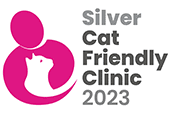As this glorious summer comes to an end, no doubt many of you will be making things are ready for winter. Salt for the path, carrot for the snowman’s nose and of course antifreeze for the car. But beware, antifreeze can be harmful to pets so care needs to be taken. Ethylene glycol is a constituent of antifreeze and is toxic to cats causing acute kidney failure. It is sweet tasting and attracts cats, dogs & children for this very reason.
 It can also be found in some cosmetics, some plants, radiator coolant, decorative snow globes & air conditioning coolant. Ethylene Glycol quickly breaks down once ingested and although the kidneys will deal with some of it, the remainder forms Calcium Oxalate Crystals that block the kidneys causing necrosis. It is the metabolic processes within a cat that form the by-products that are highly toxic to cats. As little as a teaspoon can be fatal in cats or two tablespoons for dogs. Ingestion of even the smallest amount should be treated very seriously and requires immediate veterinary treatment. Cats are about four times as sensitive to this poison as dogs and their smaller size adds to the risk they face.
It can also be found in some cosmetics, some plants, radiator coolant, decorative snow globes & air conditioning coolant. Ethylene Glycol quickly breaks down once ingested and although the kidneys will deal with some of it, the remainder forms Calcium Oxalate Crystals that block the kidneys causing necrosis. It is the metabolic processes within a cat that form the by-products that are highly toxic to cats. As little as a teaspoon can be fatal in cats or two tablespoons for dogs. Ingestion of even the smallest amount should be treated very seriously and requires immediate veterinary treatment. Cats are about four times as sensitive to this poison as dogs and their smaller size adds to the risk they face.
Symptoms
Within 30 minutes to 12 hours of ingestion, a cat will show the following….
- Excessive thirst
- Excessive urination
- Will appear intoxicated, may stumble & appear dizzy.
- Vomiting
- Seizures
- Not eating
- Excitability
After a time, these symptoms may pass, but your pet is not out of danger as the next stage will set in without treatment. The second stage is usually 12-24 hours after ingestion and symptoms may include
- Rapid breathing & heart rate
- High blood pressure
- Lethargy
The third stage symptoms include
- Kidney failure
- Vomiting
- Depression
- Coma
Treatment
It is important that if you can identify the source of the poison, you take it with you or take details of the product including chemical composition. Your vet can do various tests including blood & urine to evaluate toxicity and the extent of damage to the kidneys. The sooner the cat gets treatment, the better it’s prognosis. Early treatment may include inducing vomiting to try and reduce the absorption of the antifreeze. Further treatment will be to support the kidneys and sometimes chemicals can be administered to reduce the effect of antifreeze on the kidneys. As well as damage to the kidneys this poison can also affect the central nervous system and it is not possible to reverse this damage.
Prevention
As always, prevention is better than cure. The following simple steps can be taken to reduce the risk…
- Keep antifreeze sealed and away from pets.
- If you change the antifreeze on your car, make sure all spills are thoroughly washed away.
- Do not let your pet drink from puddles.
- Do not let your pet into your garage or any others.
- Check your car regularly for leaks.





